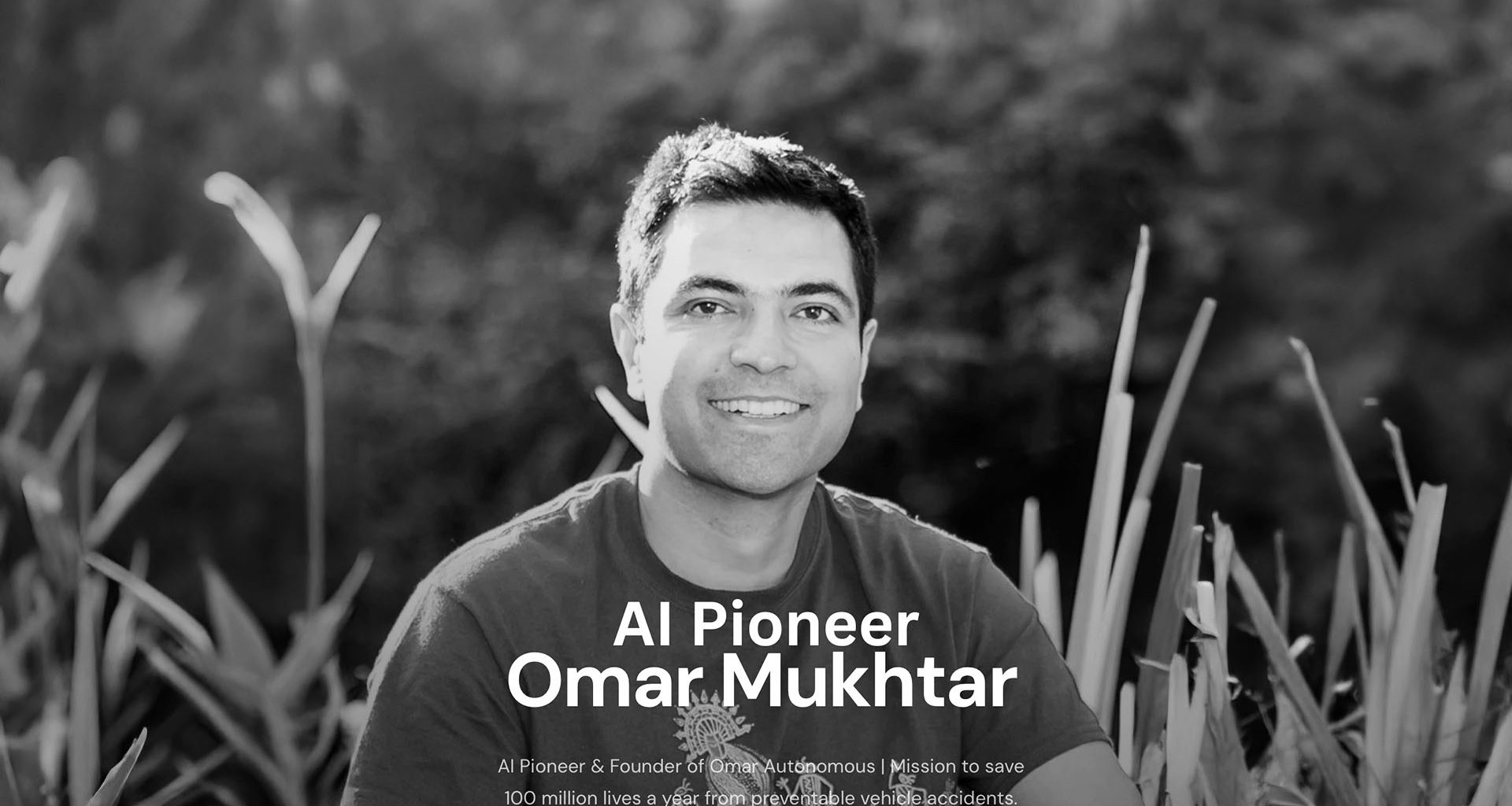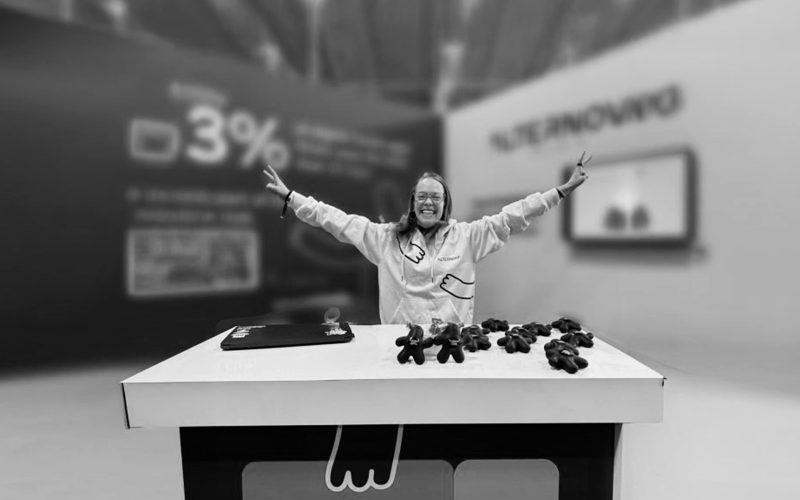$15.7 trillion will be generated by AI in the global economy by 2030, but mastery—not hype—will determine who captures that value. The opportunity is massive, but for investors, partners, and customers, the trillion-dollar question remains: who will actually deliver?
Malcolm Gladwell famously said it takes 10,000 hours to master a craft. Omar Mukhtar has spent over 60,000 hours mastering AI—starting in 2004, when he built his first AI product before graduating college. Today, as founder ofOmar Autonomous, he’s applying that mastery to one of the world’s most urgent, solvable crises: the $871 billion annual cost of road crashes, 94% of which are caused by human error—and are therefore preventable.
Founder’s Pain Into Global Mission: Solving a Trillion-Dollar Crisis with AI
Some entrepreneurs start companies because they see market opportunities. Omar’s motivation runs deeper than that. “For 10 years I took three buses each way to the hospital to get medicine for my mom,” he says. Every 10 days getting medicine that would last 2 weeks, a trip done over and over for a decade.
That’s not the kind of experience you forget.
Those trips showed him how transportation creates barriers that shouldn’t exist. Getting medicine for a sick parent shouldn’t require hours on multiple buses. “Transportation shouldn’t be a barrier to care, opportunity, or empowerment for anyone in the world,” Omar explains.
When he founded Omar Autonomous in 2023, that principle became the foundation. This isn’t about building cool tech for tech’s sake. It’s about making autonomy accessible everywhere and unlocking the $15.7 Trillion dollars in value through intelligent, ubiquitous AI.
AI Was Born to Solve This $871B Problem — But No One Is Solving Fast Enough
“Every year, there are more than 100 million accidents globally and over 14 million accidents in America,” Omar points out. More than 100 million people deal with the aftermath of crashes annually. The economic damage? Around $871 billion when you add up lost productivity, medical costs, and everything else.
The frustrating part is that 94% of these accidents happen because of human error. Distraction, fatigue, slow reaction times, glare, low light: All the normal limits that come with being human. Omar spent years at Amazon and Microsoft building AI systems that served hundreds of millions of users. He knew the technology existed to help. The question was how to deploy it in a way that actually worked.
Any Car to Autonomy in 30 Minutes — A Scalable AI Platform That Works
Omar Autonomous built a system that can be installed in under 30 minutes to make any vehicle autonomous and safe. That installation speed matters more than it might seem. Other companies are spending billions on infrastructure and specialized hardware. Omar went a different direction. “We’re not talking about replacing drivers—we’re augmenting human ability with intelligent systems that can see, react, and adapt faster than any human could,” he says. The system works across different vehicle types. Small cars, SUVs, delivery vans, luxury vehicles. He once converted a rented truck into a self-driving vehicle in under 30 minutes, then reversed it to normal just as fast. That flexibility makes scaling possible outside of controlled test environments and into the hands of business owners and customers NOW.
Mobility for All: Why Real Autonomy Means Affordable Empowerment, Not Just Self-Driving Cars
When Omar talks about the future, he’s not just thinking about autonomous vehicles cruising around tech hubs. “True autonomy isn’t about cars that can drive on their own. It’s about mobility for all.” It’s about the single mother who doesn’t have to worry about long commutes to get care for her child. It’s about business owners not watching their insurance premiums spike after a single crash. It’s about truck drivers making it home safely every night.
Making autonomy as universal as electricity is the goal: Not a luxury for some cities or some people, but accessible and affordable everywhere. Those years riding three buses each way taught him something that stuck: transportation access shapes everything else in life.
$15.7 Trillion in AI: How Omar Autonomous Plans to Save 100 Million Lives — Led by an AI Pioneer and a Team with 5 IPOs
“The future belongs to those who build it, not just talk about it,” Omar says. “We have the technology, the data, and the moral responsibility to end 100 million preventable road accidents.”
That target — 100 million lives saved — is ambitious. But Omar spent decades preparing. Building AI products decades ahead of mainstream AI, his work at Amazon and Microsoft built the technical foundation. His decade of three-bus trips to secure medicine for his mother gave him the human motivation.
It’s also a mission backed by mastery. AI is projected to add $15.7 trillion to the global economy by 2030, but that value won’t be captured by hype. It will go to the builders. Malcolm Gladwell famously said it takes 10,000 hours to master a craft. Omar Mukhtar has spent over six times that – 60,000 hours building real-world AI — and today, his team is applying that mastery to solve the $871 billion road safety crisis.
Omar Autonomous, with a team that’s helped take five companies public, is putting AI at scale, purpose and precision together — empowering billions.
Follow Omar Mukhtar on LinkedIn to explore how AI can unlock trillions in value, make roads safer and smarter for everyone.
(Source: PwC projects AI will contribute up to $15.7 trillion to the global economy by 2030.)











